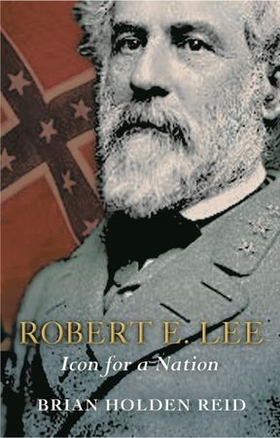
Legg til i ønskeliste
Gratis utdrag
- Sett i bokhyllen
- Les gratis utdrag
Robert E. Lee ebok
42,-
An authoritative and balanced assessment of a great American commander.General Robert E Lee, handsome, immaculately attired and dignified, quickly emerged as one of the great heroes of the American Civil War. This is rather surprising for, as Brian Holden Reid points out in his lucid new study, Lee was the most successful general to command troops against the armies of the United States before General Vo Nguyen Giap in Vietnam.Lee's reputation as a peerless commander was greatly embroidered by …
Undertittel
Icon for a Nation
Forlag
Weidenfeld & Nicolson
Utgitt
15 desember 2016
Sjanger
Biografier, Dokumentar og fakta
Språk
English
Format
epub
DRM-beskyttelse
LCP
ISBN
9781780227054
An authoritative and balanced assessment of a great American commander.
General Robert E Lee, handsome, immaculately attired and dignified, quickly emerged as one of the great heroes of the American Civil War. This is rather surprising for, as Brian Holden Reid points out in his lucid new study, Lee was the most successful general to command troops against the armies of the United States before General Vo Nguyen Giap in Vietnam.
Lee's reputation as a peerless commander was greatly embroidered by writers after 1865 who were dedicated to the Lost Cause and presented a sentimental picture of the Old South with Lee as its finest product. His character and achievements in the Civil War were presented as a validation of the Confederate cause. It is important for historians to come to terms with this legacy. Professor Holden Reid briskly surveys the forms that the Lee legend took after his death in 1870 and discusses the reasons behind the way it crystallised as it did. As a non-American he brings a fresh, detached eye to this process.
Holden Reid argues that Lee's qualities as a general do not require any exaggeration or embellishment. Lee's short period of field command, just under three years, was marked by imagination, decisiveness, stamina, and a determination to win the Civil War rather than just avoid losing it. Holden Reid defends Lee stoutly against later critics who have argued that his offensive strategy was self-defeating. He believes that it was the only realistic course offered to the Confederacy to win its independence. He acknowledges though that all great commanders have their faults. Lee exhibited occasional over-confidence, under-estimated his enemy, and failed to develop his staff in any modern sense. The result is an authoritative and balanced assessment of a great American commander.
General Robert E Lee, handsome, immaculately attired and dignified, quickly emerged as one of the great heroes of the American Civil War. This is rather surprising for, as Brian Holden Reid points out in his lucid new study, Lee was the most successful general to command troops against the armies of the United States before General Vo Nguyen Giap in Vietnam.
Lee's reputation as a peerless commander was greatly embroidered by writers after 1865 who were dedicated to the Lost Cause and presented a sentimental picture of the Old South with Lee as its finest product. His character and achievements in the Civil War were presented as a validation of the Confederate cause. It is important for historians to come to terms with this legacy. Professor Holden Reid briskly surveys the forms that the Lee legend took after his death in 1870 and discusses the reasons behind the way it crystallised as it did. As a non-American he brings a fresh, detached eye to this process.
Holden Reid argues that Lee's qualities as a general do not require any exaggeration or embellishment. Lee's short period of field command, just under three years, was marked by imagination, decisiveness, stamina, and a determination to win the Civil War rather than just avoid losing it. Holden Reid defends Lee stoutly against later critics who have argued that his offensive strategy was self-defeating. He believes that it was the only realistic course offered to the Confederacy to win its independence. He acknowledges though that all great commanders have their faults. Lee exhibited occasional over-confidence, under-estimated his enemy, and failed to develop his staff in any modern sense. The result is an authoritative and balanced assessment of a great American commander.





